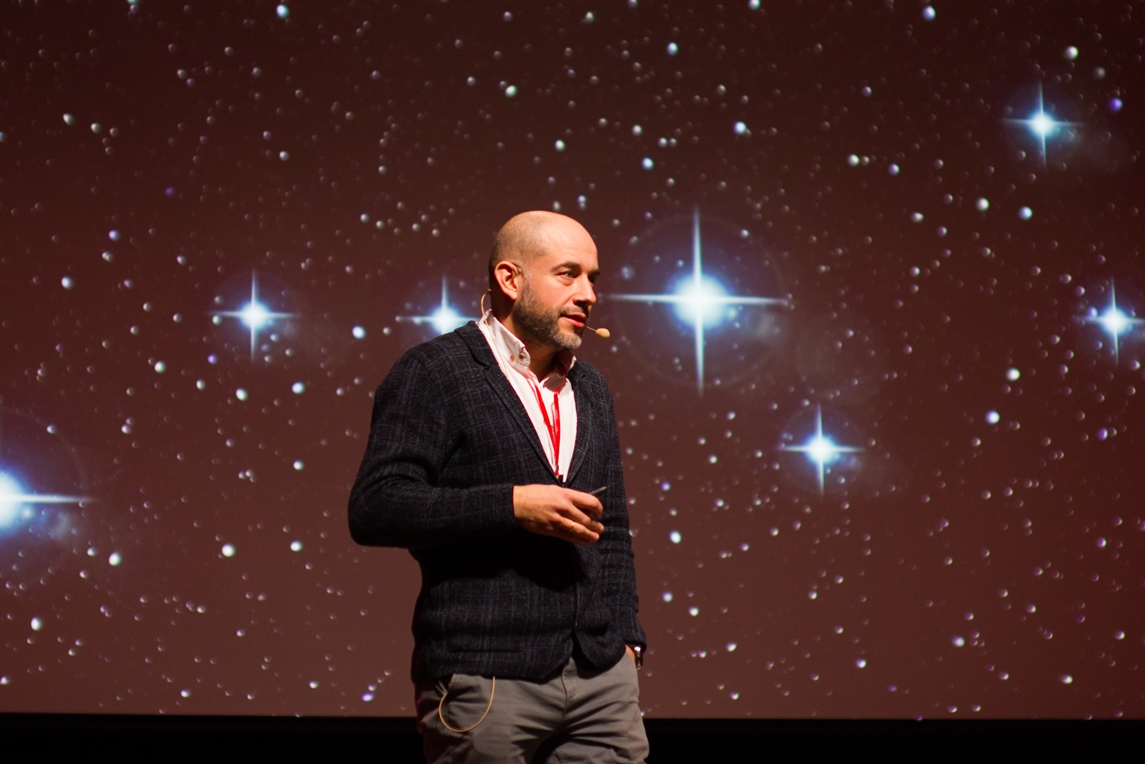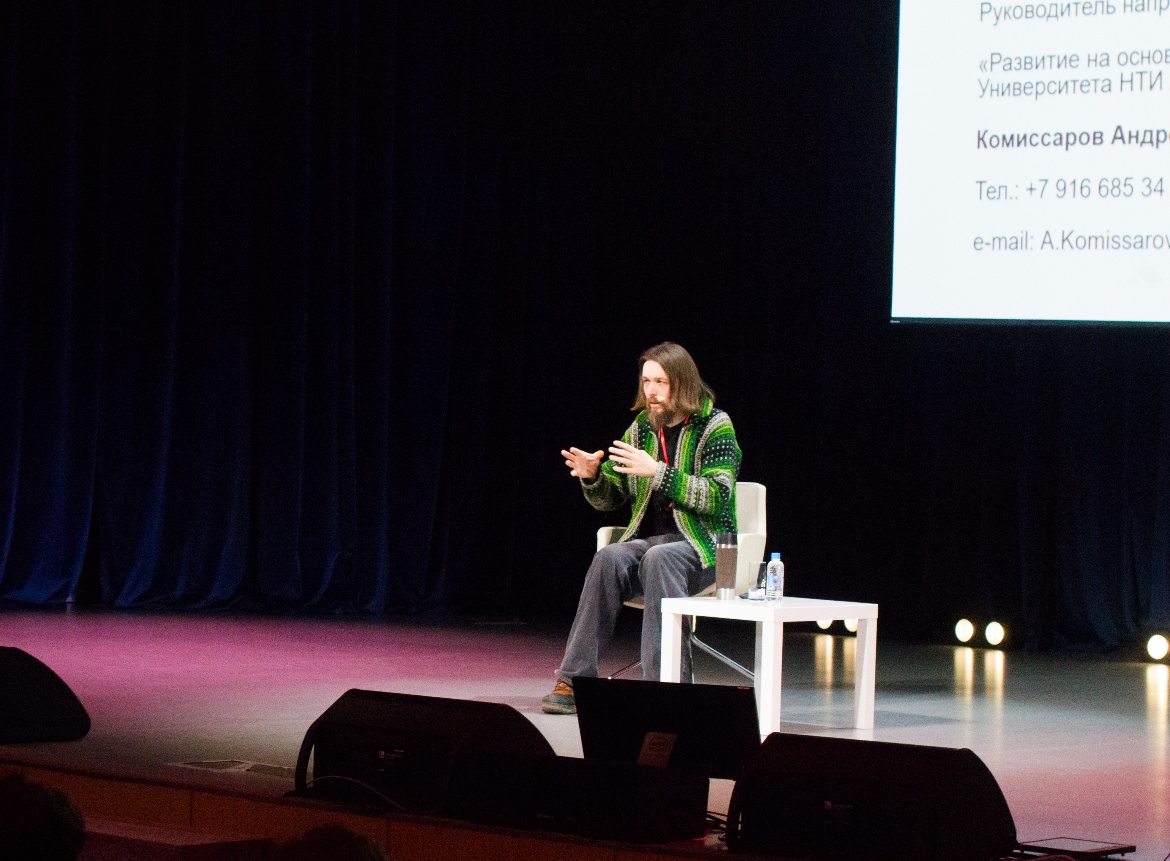‘AI Is a Tool, and Those Who Master It Will Have a Competitive Advantage’
.jpg)
HSE University is hosting the FIT-M 2022 International Scientific Forum. As part of this event, the HSE Cultural Centre held a series of lectures on November 29–30. On December 7–9, guests of the forum will have three days of practical work with scientists, IT industry leaders, businesspeople, and industry experts.
FIT-M 2022 is a new communication venue comprising four formats: the MACSPro conference, a reactor, a hackathon, and a ‘lectorium’. This will quickly allow participants to understand the main trends in the use of modern information technologies for scientific and applied research.
The first part of the forum is a lectorium—a series of 15 lectures selected by the organisers for a wide audience. The lectures were selected over a year through an open international competition. The speakers of the lecture series spoke to the HSE News Service about the scientific topics and problems covered in their presentations.

Ivan Karpushkin, Head of the Rapid Foresight Methodology Development, NGO NTI Platform, talks about the current approach to technoculture. ‘This method is used to figure out how technology affects culture, society, and the individual, and how the individual and society, in turn, affect the development of technology. This is a kind of intersection of the sociosphere, anthroposphere, and technosphere,’ he explains. Ivan Karpushkin also notes that we have now plunged into a new wave of rapid technological development and we have once again become dependent on technology. Although technology should make our life easier, expanding our opportunities, we do not understand where it will take us. This raises the question of the ethics of AI and digitalisation,’ he adds. ‘This topic is becoming particularly acute now,’ says Ivan Karpushkin. ‘How far can people push their capabilities by using technology? What technology is acceptable and what is not? What decisions can we entrust to technology? Is it possible to entrust them with human life or controlling potentially hazardous objects such as vehicles or planes? All these questions arise both at the level of managing certain large processes and at the level of everyday things, such as whether you can entrust your schedule to your phone.’

Andrey Komissarov, Director of Data-Driven Human Development at 2035 University, gave a lecture entitled ‘Artificial Intelligence: The 2022 Revolution and Its Impact on the Emergence and Disappearance of Professions.’ ‘Artificial Intelligence in Education’, a collection of articles about various AI developments and implementations, was recently published in Russia. A chapter on Russian AI practices in education was subsequently added to the collection, and related material can be found on Andrey Komissarov's Education Design Telegram channel. ‘In my lecture, I discuss a number of things. First, what is happening in AI? There is an interesting revolution going on there, and it has to do with generative neural networks, which are squeezing a number of professions out of the market. Second, what are we are doing? We are dealing with AI-based tools for education and labour market analysis. Third, what is the difference between strong and weak AI?’ he explains. He adds that AI does not seek to replace teachers. ‘Artificial intelligence is yet another tool that humans can use,’ he stresses. ‘And those who master this tool will have a competitive advantage over those who say, “No, we don't need it.”’
On December 7, at the official opening of the forum, guests will be able to ask questions about modern technological trends in science, industry, and business. The Q&A session will be held by the heads and staff of HSE Tikhonov MIEM (HSE University), Lomonosov Moscow State University, ITMO, Mendeleev Russian Chemical Technology University, Bauman Moscow State Technical University, RANEPA, the Russian Academy of Sciences, MIREA Russian Technological University, as well as the technical directors of international innovative IT companies such as ANNA Systems, Sberbank, Wangsu, Yandex, LUKOIL Technology, FS Labs, Selectel, Ozon Fintech, etc.
At the MACSPro conference, participants will discuss the challenges of modelling and analysing complex systems and processes.
The reactor will host a series of master classes, intensive courses, and workshops to boost professional skills in the most in-demand areas of IT implementation in scientific research, industrial engineering, and business processes.
The hackathon will bring together programmers, developers, scientists, mathematicians, system analysts and technologists. Working in teams, they will have to find new solutions to IT problems.
See also:
Virtual Mozart, Venture Capital Bot, and Educational Video Generation: How AI is Used at HSE University
In mid-November, HSE University hosted a meetup where faculty, researchers, and administrators presented their projects and shared experiences with using AI technologies in education and research. The meeting was part of the continuing professional development programme 'Artificial Intelligence in Education and Research.'
‘In the Future, I Expect Rapid Development of Professions Related to Prompt Engineering’
The English-language programme of HSE Online ‘Master of Computer Vision’ will change its name to ‘Artificial Intelligence and Computer Vision’ in 2024. Andrey Savchenko, the programme academic supervisor, shares how the new name will affect the programme semantics, why AI has become the main federal trend in the field of information technology, and what tasks graduates will solve.
Artificial Intelligence as a Driver of Digital Transformation
In December, the HSE Institute for Statistical Studies and Economics of Knowledge and the HSE AI Research Centre participated in UNCTAD eWeek to discuss the future of the emerging digital economy. One of the topics discussed during the conference was artificial intelligence and its applications in driving the digital transformation of industry sectors. The session was co-organised by HSE University.
HSE University Receives Highest Grant under Priority 2030 Programme
HSE University has proved its leading position in the first group of the ‘Research Leadership’ field under the Priority 2030 programme. The university has also received the highest grant for teaching digital competencies to students, demonstrating its educational leadership in the fields of digital technologies and AI.
‘The Future Lies with AI Technologies and HSE University Understands That’
At the AI Journey 2023 international conference in Moscow, a ranking of Russian universities that train the best AI specialists was published. HSE University entered the A+ leadership group, taking first place according to such criteria as ‘Demand for hiring graduates’, ‘Quality of educational environment’, and ‘Activities for the development of school education’. Ivan Arzhantsev, Dean of HSE University’s Faculty of Computer Science, spoke to the HSE News Service about how AI specialists are trained at HSE University and what plans the university has in this area.
‘Every Article on NeurIPS Is Considered a Significant Result’
Staff members of the HSE Faculty of Computer Science will present 12 of their works at the 37th Conference and Workshop on Neural Information Processing Systems (NeurIPS), one of the most significant events in the field of artificial intelligence and machine learning. This year it will be held on December 10–16 in New Orleans (USA).
Specialists from the HSE Institute of Education Confirm GigaChat’s Erudition in Social Sciences
A multimodal neural network model by Sber, under the supervision of HSE University’s expert commission, has successfully passed the Unified State Exam in social studies. GigaChat completed all exam tasks and scored 67 points.
HSE University Students Win in the AIJ Science Competition at AI Journey 2023
The International Sber Conference of Artificial Intelligence, ‘AI Journey 2023’ recently took place in Moscow. Alexander Rogachev, doctoral student of the HSE Faculty of Computer Science, and Egor Egorov, an HSE 4th-year undergraduate student became the winners of the AIJ Science competition for scientific articles on artificial intelligence that was held as part of the event. The research was carried out under the umbrella of the HSE's Laboratory of Methods for Big Data Analysis (LAMBDA).
HSE University Hosts Fall into ML 2023 Conference on Machine Learning
Over three days, more than 300 conference participants attended workshops, seminars, sections and a poster session. During panel discussions, experts deliberated on the regulation of artificial intelligence (AI) technologies and considered collaborative initiatives between academic institutions and industry to advance AI development through megaprojects.
Child Ex Machina: What Artificial Intelligence Can Learn from Toddlers
Top development teams around the world are trying to create a neural network similar to a curious but bored three-year-old kid. IQ.HSE shares why this approach is necessary and how such methods can bring us closer to creating strong artificial intelligence.


